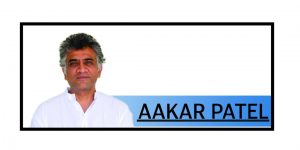Trade & Diplomacy

How do trade wars end? To answer that, we have to ask ourselves, how do wars end? The answer is that once begun, they are not easy to end. Most of the time, trade and diplomacy are conducted outside of the public view. This is not only because of secrecy but also the fact that the details are too boring to interest news debates. What tariff a country charges another on dairy, soya and auto spare parts, and what it should be charging instead, is not exciting material. Similarly, the spectacle of ‘summit’ meetings between leaders, though ultimately insubstantial, steals the show over the more meaningful but more boring meetings over details that diplomats have to resolve disputes.
Disagreements may remain after these meetings, but the option of keeping the status quo is the one that is most frequently resorted to. Escalation towards violence is rare.
But when it does come, it is not easy to control. The reasons are that the side that begins it is not the only one that has agency. The other nation’s response, its timing, its intensity and its effectiveness are impossible to predict. As boxer Mike Tyson elegantly put it: ‘Everyone has a plan until they get punched in the face.’
Wars end either when both sides have had enough, meaning their nations have suffered damage and are unwilling to suffer more. Or they end when one side is strong enough to compel the other one to submit. Much like a school fight between a large child and a smaller one. The little fellow has no option but to give up.
Unlike this example, wars and trade wars have another element, which is why they are difficult to control and escalation is impossible to predict. This is national pride and national survival. This is why trade and diplomacy work when they are done outside the public view. When they become part of the popular conversation and the public becomes participants, driven to anger by their leaders’ rhetoric on being ripped off by the other side, everything changes.
The American president says he is punishing China with tariffs and then warns it not to retaliate because he will apply further punishment. The Chinese response is to immediately inflict the same punishment on the US. Some will argue, correctly, that the tariff mostly punishes the country imposing it because its consumers will pay the import duty.
That is not the point. It is called a trade war because it is war minus the shooting. The effects are real in the sense that one side is trying to actively and materially damage the other and the other is compelled to respond.
After he put tariffs on Canada, Trump posted this: “Please explain to Governor Trudeau, of Canada, that when he puts on a Retaliatory Tariff on the US, our Reciprocal Tariff will immediately increase by a like amount!”
Canada did respond and now so has China. The options are for Trump to either do what he said he would, that is to add further tariffs on them, or to back down. If he does the former, it escalates and he has no control, if he does not act, then he is seen as losing and his credibility is shot. This is why wars are difficult to end once they are begun.
This is why this trade war will remain with us for some time. And this should concern us in India. You see, between 2004 and 2014, India grew quickly in large measure because its merchandise exports went from about $50 billion a year to about $320 billion a year in that decade. This was largely because of global trade rising in that period and when trade flattened after the global financial crisis, our growth tapered off as well. Today, another 10 years later, merchandise exports are at $400 billion or so, meaning that the rapid rate of growth is gone. The moral is that rising global trade is good for India and trade wars are terrible for us. For this reason it is important that India take on some leadership in at least attempting to resolve this.
There are some reasons to be optimistic. Democracies usually tend to be self-correcting, and the United States even more so. Its parliament is run by legislators who have to face elections every two years. If the tariffs are particularly disruptive in the next few weeks and months, and the public is restless, those up for election in November 2026 will begin to pressure their president to reduce the turbulence he has created. Even if his plan shows like it may work over the long term, this pressure could undo it.
There is an exception to this self-correction rule and that is for war. The history of the United States shows that it will continue doing the wrong thing and prosecuting war even though it is itself damaged. Vietnam and Iraq show this. In Afghanistan, the US continued doing the wrong thing, learning no lessons, punishing itself and its opponents, for 20 years before surrendering. The American public was okay with suffering through this continuation, losing citizens and treasure, perhaps because they thought it was in their national interest.
We can only hope this is not as true for the Trump trade war as it is for real war.
By Aakar Patel
News